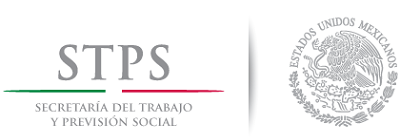
- This year the STPS anticipates capitalizing on 20,000 vacant spots in the Canadian agricultural sector.
The Mexico-Canada Seasonal Agricultural Workers Program (SAWP) began its 2015 season with a total of 1,001 workers. By the end of the season, Mexico hopes to use the constant stream of workers to capitalize on 20,000 vacant spots being created in the agricultural sector of its northern neighbour.
A first group of 488 Mexican farmworkers travelled to Canada this past January 6, with another 414 arriving on Wednesday and 99 more on Thursday, in order to meet Canadian employers’ demands for skilled labour.
In hopes of taking advantage of employment opportunities being generated in international labour markets, the Secretariat of Labour and Social Welfare estimates that through the infrastructure of the National Employment Service (SNE), it will be possible this year to capitalize on at least 20,000 vacancies that will be created in Canada’s agricultural sector, benefiting an equal number of Mexican families.
The Mexico-Canada Seasonal Agricultural Workers Program is a model of bilateral cooperation between the two countries, guaranteeing employment to farmworkers and making it possible to maintain a temporary migration flow that is orderly, circular and secure, and above all, one that fully respects the workers’ labour, social and human rights.
The SAWP, which began with the involvement of 203 workers in 1974, enables Mexican farmworkers to have access to formal, well-paid employment in Canada, which on the one hand boosts the local economy in Canada to the extent of their consumption during their stay; and secondly, through remittances to their families back in Mexico, drives the economy of their home communities and improves their quality of life.
After more than 40 years of operation of the program, in 2014 it was possible to place 19,829 agricultural workers and, according to estimates, the remittances generated by the program that year reached around $170 million Canadian dollars.
The first Mexican farmworker of the 2015 season is Sergio Manuel Higuera Quintero, originally from Baja California Sur. He joined the SAWP in 2009, managing to be specifically requested by name the following year. Now, thanks to his performance and dedication he has been requested by SPRING VALLEY GARDENS (NIAGARA) INC, of the Province of Ontario, during the past five years.
Source: http://www.stps.gob.mx/bp/secciones/sala_prensa/boletines/2015/enero/bol_356.html (In spanish)
December 31, 2014 | Mexico City | Press Release 619
In 2014, Mexico and Canada marked their 70th anniversary of diplomatic relations, the 40th anniversary of the Seasonal Agricultural Workers Program (SAWP), and the first 10 years of a partnership with shared goals. Both countries agreed to further deepen their relationship and to join together to strengthen cooperation mechanisms with a strategic reach.
In February, Prime Minister Stephen Harper made his first official visit, during which the following were signed: the third Mexico-Canada Joint Action Plan 2014-2016; a Memorandum of Understanding for the Exchange of Resources for the Management of Forest Fires; an Air Transport Agreement; and the Export Development Canada-BANCOMEXT Memorandum of Understanding and Master Cooperation Agreement on commercial financing activities.
In education, various student mobility agreements were signed to train young people in areas of interest to both countries, including: a Memorandum of Understanding between the Education Ministry and the University of British Columbia to develop a cooperation program to promote the mobility of researchers and students; a Memorandum of Understanding between the Association of Universities and Colleges of Canada (AUCC) and the National Association of Universities and Higher Education Institutions (ANUIES); and a Memorandum of Understanding on Educational Cooperation between the Mexican Foreign Ministry and the Governors of the University of Calgary, Canada.
During the sixth meeting for consultations with Canada on new and traditional security issues, good progress was made on facilitating the exchange of information, experience and best practices among government officials of the two countries to effectively address common challenges.
The Canada-Mexico Partnership was also restructured and an Executive Committee was created to make the partnership more dynamic. A High Level Dialogue on Best Practices and Consular Protection was also begun.
The Mexican government has also maintained an ongoing and proactive dialogue with Canadian authorities to discuss eliminating visas for Mexican citizens.

